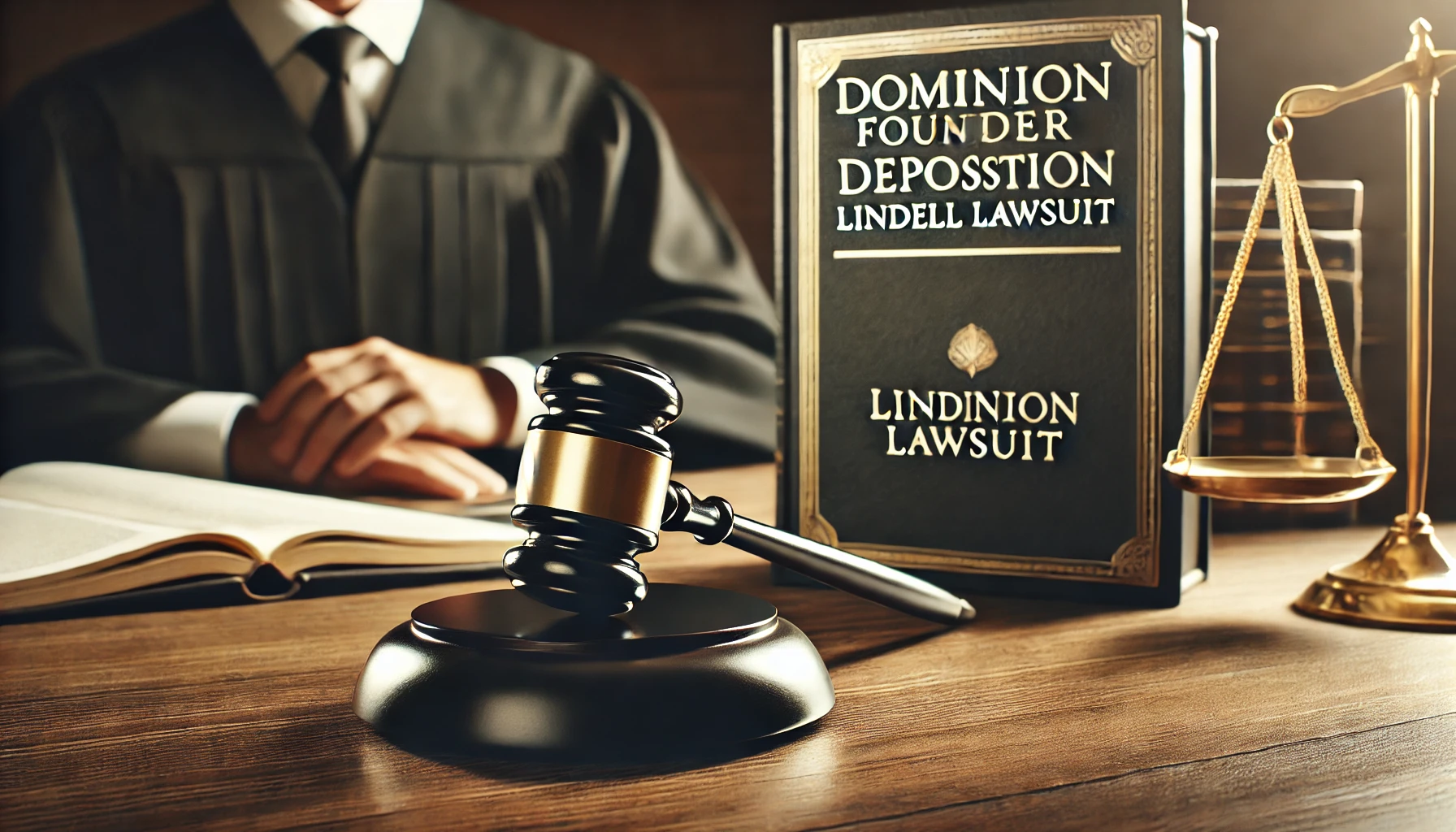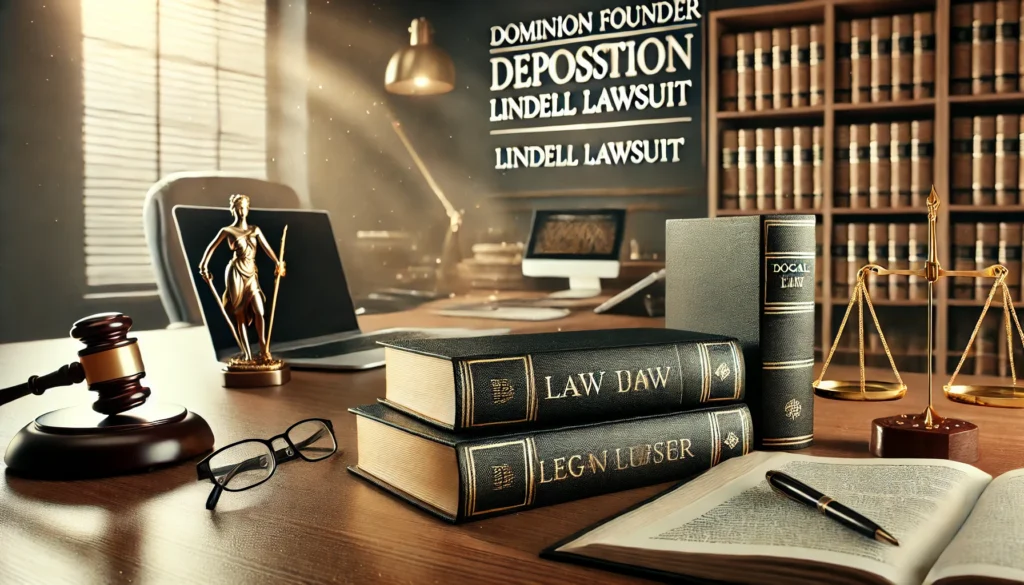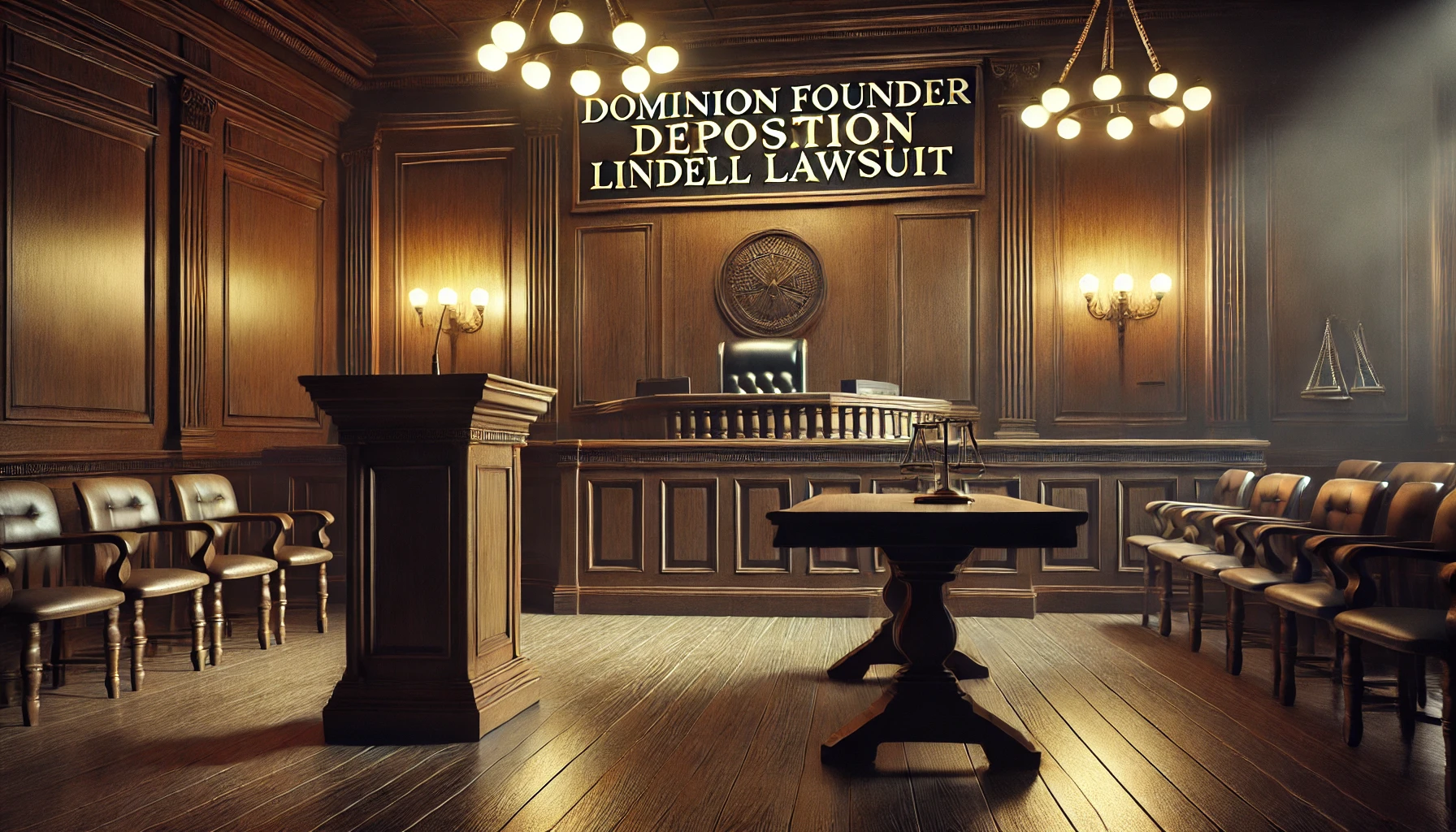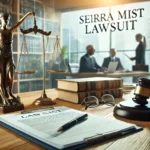Dominion Founder Deposition Lindell Lawsuit: Impact on Election Systems

The Dominion Voting Systems defamation lawsuit against Mike Lindell, often referred to as the Dominion founder deposition Lindell lawsuit, has become a landmark case in the aftermath of the 2020 U.S. presidential election. This legal battle is not just about allegations of election fraud but also about the broader issue of accountability in public discourse. At the center of this lawsuit is James Hoover, a co-founder of Dominion, whose deposition could play a critical role in the case.
The lawsuit reflects the damage caused by misinformation and the efforts to address it through legal means. Let’s dive into the details, from the background of the case to its broader implications.
Background on Dominion and Election Fraud Claims
Dominion Voting Systems is a trusted provider of election technology, offering voting machines and software to various states in the U.S. and around the world. However, after the 2020 U.S. presidential election, Dominion became the focus of unfounded conspiracy theories. These claims alleged that Dominion’s voting machines were rigged to flip votes from Donald Trump to Joe Biden.
1. Key proponents of these claims included:
- Mike Lindell, CEO of MyPillow.
- Rudy Giuliani, Trump’s former attorney.
- Sidney Powell, a lawyer known for promoting election conspiracy theories.
Despite multiple audits and investigations confirming the integrity of the election results, these allegations persisted, damaging Dominion’s reputation and leading to financial losses.
Dominion’s Defamation Lawsuits
To combat these false claims, Dominion filed defamation lawsuits against several individuals and organizations:
- Targets: Mike Lindell, Rudy Giuliani, Sidney Powell, One America News Network (OAN), and others.
- Allegations: Spreading false and damaging information about Dominion’s role in the election.
- Claims: The company seeks significant financial compensation for damages, including lost business and reputational harm.
Dominion’s lawsuits aim not only to recover losses but also to send a strong message that misinformation has consequences.
James Hoover’s Deposition
James Hoover, one of Dominion’s co-founders, was called to testify as part of the defamation case. His deposition is a critical step in establishing the facts and countering the misinformation spread by Lindell and others.
- Court’s Ruling: A federal judge mandated Hoover’s deposition, with a strict three-hour limit to ensure focus on relevant issues.
- Purpose: Hoover’s testimony is expected to shed light on Dominion’s operations and directly refute claims of election fraud.
- Impact: This deposition could provide crucial evidence to support Dominion’s case, strengthening their argument against Lindell’s baseless claims.
Mike Lindell’s Role and Conduct
Mike Lindell has been one of the most outspoken figures promoting conspiracy theories about the 2020 election. His claims against Dominion were made in public speeches, interviews, and even during rallies.
1. Allegations Against Lindell:
- Accusing Dominion of manipulating votes without any credible evidence.
- Repeating these claims despite clear refutations from experts and audits.
2. Behavior During Legal Proceedings:
- Lindell’s conduct during depositions has been described as disruptive and unprofessional.
- Reports detail his use of vulgar language, insults toward lawyers and judges, and even leaving the deposition to participate in a podcast.
3. Repercussions:
His behavior has raised questions about his credibility and could negatively affect his legal defense.
Broader Implications of the Lawsuit
This case is more than a defamation lawsuit; it carries significant implications for various sectors:
1. For Dominion Voting Systems:
- An opportunity to repair its damaged reputation.
- A chance to hold accountable those who spread false claims about its products.
2. For Election Integrity:
- Reinforces trust in the electoral process by challenging baseless allegations.
- Highlights the importance of safeguarding public confidence in democratic institutions.
3. For Legal Accountability:
- Sets a precedent for how courts handle cases involving misinformation.
- Sends a strong message that spreading falsehoods for personal or political gain can have serious consequences.
4. For Media and Public Figures:
- Encourages responsible reporting and commentary.
- Emphasizes the need to verify information before amplifying it.
Key Developments to Watch
The case is still unfolding, and several developments are worth monitoring:
- Hoover’s Deposition: The content and outcomes of his testimony will be pivotal.
- Court Rulings: How the judge handles Lindell’s behavior and the overall case strategy will shape the outcome.
- Public and Legal Reactions: The verdict could influence future defamation lawsuits and public discourse around misinformation.
Conclusion
The Dominion Voting Systems lawsuit against Mike Lindell, widely recognized as the Dominion founder deposition Lindell lawsuit, is a defining moment in the fight against misinformation. It underscores the importance of truth, accountability, and integrity in public discourse, particularly when addressing critical aspects of elections and democracy.
As the case unfolds, its implications will extend far beyond Dominion or Lindell, shaping societal approaches to combating misinformation and addressing defamation in the digital era. This lawsuit serves as a powerful reminder that words and actions carry significant consequences, emphasizing the need for accountability to uphold trust in democratic institutions.
FAQs
Q1. Why is Dominion suing Mike Lindell?
A. Dominion alleges Lindell spread false claims about election fraud involving its machines, damaging its reputation and business.
Q2. What is James Hoover’s role in the lawsuit?
A. James Hoover, a Dominion co-founder, is testifying to clarify operations and counter election fraud allegations against the company.
Q3. How has Mike Lindell behaved during legal proceedings?
A. Lindell has been disruptive, using vulgar language and insulting lawyers, which could harm his credibility in court.
Q4. What does Dominion aim to achieve with these lawsuits?
A. Dominion seeks compensation for damages and aims to hold individuals accountable for spreading election misinformation.
Q5. Why is this lawsuit significant for election integrity?
A. The case highlights the importance of combating misinformation to protect public trust in election systems and democratic processes.
Recommended Article:
Rockford Mesothelioma Lawyer Vimeo Profiles for Trusted Legal Support
Lebanon Mesothelioma Legal Questions: Seeking Justice and Compensation
Sierra Mist Lawsuit: From Trademark Disputes to Transparency
Prince Health Group LLC Florida Lawsuit: Impacts on Patients and Healthcare














































































































































































































































































































































































































































































































































































